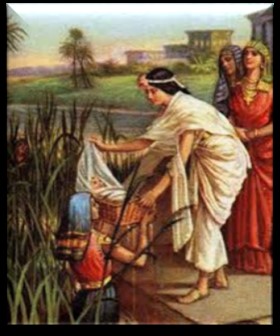Salt Seasonings

Salt in Biblical times is as important in our everyday life. Salt is a basic commodity we use for seasonings and to preserving food. Salt is used symbolically; believers are the salt of the earth. Salt is used in the sacrificial practice, there is a “Covenant of Salt”, and there are even places carrying the name salt.
Salt used as a Seasoning:
Salt had a variety of uses in ancient times just like we do in this time period. Salt improves the flavor of unsavory food like the white of an egg. (Job 6:6). Meat offering shall be season with salt. (Leviticus 2:13). Salt is an important preservative as well as seasoning as we see in Matthew 5:13 is salt has lost its savor that is to lose its taste or strength it is good for nothing and should be cast out, and be trodden under foot of men. Salt is good: but if the salt have lost his saltiness is not good for seasoning. (Mark 9:50). Salt is good: but if the salt have lost his savor, what can be salted by it? It is neither fit for the land, nor yet for the dunghill; but men cast it out. He that hath ears to hear, let him hear. (Luke 14:34-35).
Salt Used in Sacrificial Practice:
Salt was a component of Israelite worship. Every oblation of meat offering shall be season with salt; neither shalt thou suffer the salt of the covenant of your God to be lacking from your meat offering: with all your offerings you shall offer salt. (Leviticus 2:13). Salt was also used to season certain burnt offerings that is brought before the LORD and the priests shall throw salt upon them and they shall offer them up for a burnt offer them up for a burnt offering unto the LORD. (Ezekiel 43:24). Jesus tells His disciples are to become sacrifices and everyone shall be salted with fire and every sacrifice shall be salted with salt. (Mark 9: 49). Jesus summons His own, by the mercies of God, that we present our bodies a living sacrifice, holy, acceptable unto God, which is your reasonable service. And be not conformed to this world: but be transformed by the renewing of your mind, that we may prove what is that good, and acceptable, and perfect, will of God.(Romans 12:1-2).
The Covenant of Salt:
A covenant sealed by salt was believed to be everlasting between the LORD and His people. We should know that the LORD God of Israel gave the kingdom over Israel to David forever, even to him and to his sons by a covenant of salt. (2 Chronicles 13:5). All the heave offerings of the holy things, which the children of Israel offer unto the LORD, He has given them, and there sons and there daughters, by a statute forever: it is a covenant of salt for ever before the LORD unto them and to their seed with them. (Numbers 18:19). Jesus likened His disciples unto salt when He said they are the salt of the earth: (Matthew 5:13).
Salt used Symbolically:
Old Testament importance of salt has been demonstrated with the Covenant of Salt and represents life. Salt symbolized a permanent covenant, since the eating of salt with another person signified that the two were bound together in loyalty the maintenance is the “to eat salt” (Ezra 4:14). Elisha the prophet of the LORD God also preserved life with salt. The men of the city of Jericho told Elisha, the situation of this city is pleasant, but the water is naught, and the ground barren. Elisha told them to bring him a new cruse that is a bowl or jar, and put salt therein. And they brought it to him. Elisha went unto the spring of the waters, and cast the salt in there, and said, “Thus said the LORD, I have healed these waters; there shall not be from thence any more death or barren land.) So the waters were healed unto this day, according to the saying of Elisha which he spoke. (2 Kings 2:19-22). It is also mentioned that Christians following Jesus Christ are the salt of the earth as they give life and preservation to the world. (Matthew 5:13). Salt was valued medicinally and was rubbed on newborn babies and also the prophet Ezekiel compared the city of Jerusalem to a newborn baby unloved and abandoned: “And say, Thus saith the Lord GOD unto Jerusalem; Thy birth and thy nativity is of the land of Canaan; thy father was an Amorite, and thy mother an Hittite. And as for thy nativity, in the day thou wast born thy navel was not cut, neither wast thou washed in water to supple thee; thou wast not salted at all, nor swaddled at all. None eye pitied thee, to do any of these unto thee, to have compassion upon thee; but thou wast cast out in the open field, to the lothing of thy person, in the day that thou wast born.” (Ezekiel 16:3–5). It was only because the LORD had shown pity on Jerusalem, did not perished.
Salt Used as a Symbol of Destruction:
The wife of Lot turned into a pillar of salt because she was disobedient and looked back from behind as they ran from Sodom, and Gomorrah. (Genesis 19:26). Ancient armies used salt as an agent of destruction, pouring it over the ground of conquered territories. Abimelech fought against the city all that day; and he took the city, and slew the people that was therein, and beat down the city, and sowed it with salt. (Judges 9:45). Salt is associated with the destruction of life, a land gone to waste and that the whole land thereof is brimstone, and salt, and burning, that it is not sown, nor bears, nor any grass grows therein, like the overthrow of Sodom, and Gomorrah, Admah, and Zeboim, which the LORD overthrew in his anger, and in his wrath: (Deuteronomy 29:23). Therefore as I live, said the LORD of hosts, the God of Israel, Surely Moab shall be as Sodom, and the children of Ammon as Gomorrah, even the breeding of nettles, and saltpits, and a perpetual desolation: the residue of my people shall spoil them, and the remnant of my people shall possess them. (Zephaniah 2:9). The LORD God said He would curse the man that trusts I ma, and make flesh his arm, and whose hart departs from the LORD. This man shall be like the heath in the desert, and shall not see when good comes; but shall inhabit the parched places in the wilderness, in a salt land and not inhabited. The LORD God will bless the man that trusts in the LORD and whose hope the LORD is. This man shall be as a tree planted by the waters, and that spreads out her roots by the river, and shall not see when heat comes, but her leaf shall be green; and shall not be careful in the year of drought, neither shall cease from yielding fruit. (Jeremiah 17:5-8).
Salt Named for places:
The vale of Siddim, which is the salt sea. (Genesis 14:3). The south quarter shall be from the wilderness of Zin along by the coast of Edom, and your south border shall be the outmost coast of the salt sea eastward: (Numbers 34:3). The border shall go down to Jordan, and the goings out of it shall be at the salt sea: this shall be your land with the coasts thereof round about. (Numbers 34:12). The plain also, and Jordan, and the coast thereof, from Chinnereth even unto the sea of the plain, even the salt sea, under Ashdothpisgah eastward. (Deuteronomy 3:17). the east border was the salt sea, even unto the end of Jordan. And their border in the north quarter was from the bay of the sea at the uttermost part of Jordan. The border went up to Bethhogla, and passed along by the north of Betharabah; and the border went up to the stone of Bohan the son of Reuben: (Joshua 15:5-6). Joash king of Judah slew of Edom in the valley of salt ten thousand, and took Selah by war, and called the name of it Joktheel unto this day. (2 Kings 14:7). Abishai the son of Zeruiah slew of the Edomites in the valley of salt eighteen thousand. (1 Chronicles 18:12). Amaziah strengthened himself, and led forth his people, and went to the valley of salt, and smote of the children of Seir ten thousand. (2 Chronicles 25:11).
That the waters which came down from above stood and rose up upon an heap very far from the city Adam, that is beside Zaretan: and those that came down toward the sea of the plain, even the salt sea, failed, and were cut off: and the people passed over right against Jericho. (Joshua 3:16). And from the plain to the sea of Chinneroth on the east, and unto the sea of the plain, even the salt sea on the east, the way to Bethjeshimoth; and from the south, under Ashdothpisgah: (Joshua 12:3).
Cite Article Source
MLA Style Citation:
Holstein, Joanne “Salt Seasonings:.” Becker Bible Studies Library Mar 2015.< https://guidedbiblestudies.com/?p=2405,>.
APA Style Citation:
Holstein, Joanne (2015, March) “Salt Seasonings:.” Becker Bible Studies Library. Retrieved from https://guidedbiblestudies.com/?p=2405,.
Chicago Style Citation:
Holstein, Joanne (2015) “Salt Seasonings:.” Becker Bible Studies Library (March), https://guidedbiblestudies.com/?p=2405, (accessed).


